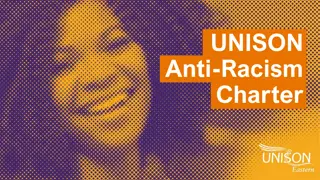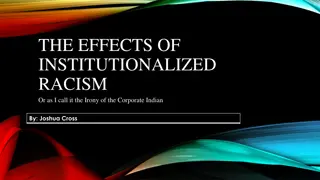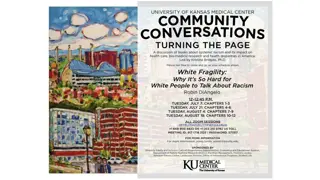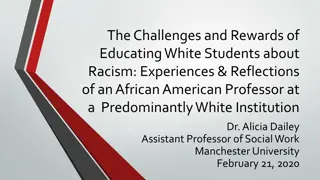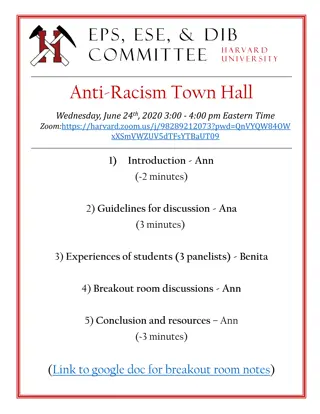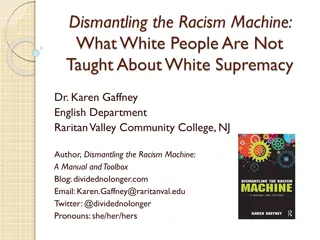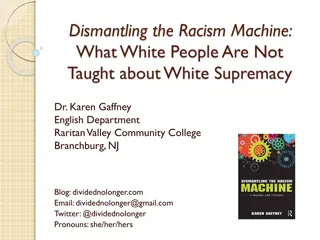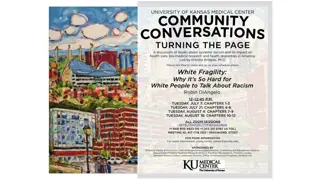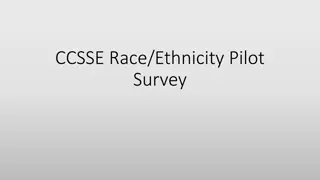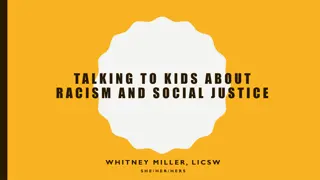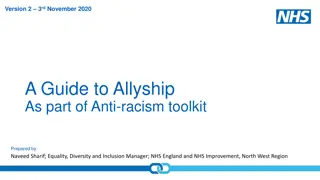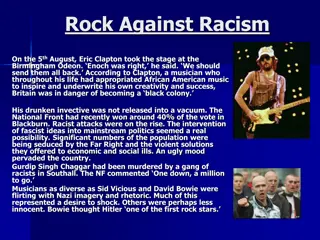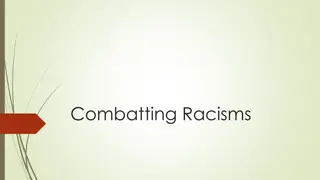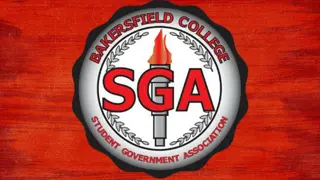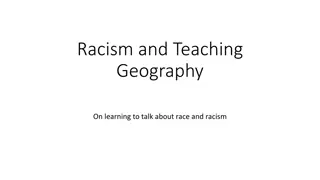Stand Against Racism: A Call to Action
Explore the significance of standing up against racism, reflecting on recent events like the George Floyd tragedy and global anti-racism protests. Delve into understanding discrimination, prejudice, and the power of unity in combating inequality. Witness the impactful gestures of solidarity, such as taking the knee, as a symbol of defiance towards racial injustice.
Download Presentation

Please find below an Image/Link to download the presentation.
The content on the website is provided AS IS for your information and personal use only. It may not be sold, licensed, or shared on other websites without obtaining consent from the author.If you encounter any issues during the download, it is possible that the publisher has removed the file from their server.
You are allowed to download the files provided on this website for personal or commercial use, subject to the condition that they are used lawfully. All files are the property of their respective owners.
The content on the website is provided AS IS for your information and personal use only. It may not be sold, licensed, or shared on other websites without obtaining consent from the author.
E N D
Presentation Transcript
In Mr McGraths latest assembly he asked you about what you strongly believe in. What would you fight for? Who or what would you stand up for?
What do you understand about racism? https://www.bbc.co.uk/bitesize/clips/zqvnvcw Watch the video linked above on BBC Bitesize. It explains what discrimination and prejudice are and tells the story of a young girl who experienced racism at school. Benjamin Zephania, the British poet and writer, performs one of his poems that aims to show youngsters that racism is wrong and we are all the same on the inside. Think: What would you have done if you had witnessed that behaviour in school?
George Floyd and racism in the news: Anti-racism protests have been taking place around the globe. They began in reaction to the death of a man named George Floyd in the US after he was stopped by police. Four officers were sacked and then later charged in connection with his death. George Floyd was an African-American man. The officers said he was suspected of using fake money and they stopped him and held him down by kneeling on his neck. Despite saying he couldn t breathe, he wasn t released and soon afterwards he died. What happened to Mr Floyd has again raised the issue of racism in American society and the unfair treatment that many African-American communities feel they face in the US, particularly when it comes to the police.
Protests Demonstrators right across the UK have been taking part in protests. People all over the world are calling for an end to racism and inequality. Click through the following images read the messages on the placards and think about why these adults and children are there and how much it means.
Thousands of people knelt at this protest in Manchester. The action is called taking the knee . It has become an important symbol during the current protests but it was first made popular by black NFL players back in 2016 who were taking a stand against racial inequality and police brutality in America.
Protestors in Bristol tore down a statue of Edward Colston who was a slave trader in the 17th Century. The statue was then dragged through the streets of Bristol and thrown into the harbour. Many people think the statue should have been removed a long time ago but other say this is an act of vandalism. What do you think?
What can you do to become anti- racist? One of the quotes from Clara Amfo sspeech this week on radio 1 was There is a false idea that racism and in this case anti-Blackness is just name calling and physical violence, when it is so much more... than that . It is not enough to not be racist. We need to ensure that we are all anti-racist. So how do we become anti-racist? learning more about racism and Black History having conversations with our friends and family about the protests (it s OK if those conversations are uncomfortable it means we are challenging each others thinking) reading books about people from diverse backgrounds
Suggested reading list: Hidden Figures The true story of four Black Women and the Space Race by Margot Lee Shetterly Young, Gifted and Black Meet 52 Black heroes from past and present by Jamia Wilson Planet Omar Funny comic-style book about Omar and his muslim family by Nasaya Mafaridik
Suggested reading list: Have you read a good book we could add to this list? Send in your suggestions from home (use your year team email address) and we will add them to the lesson.











